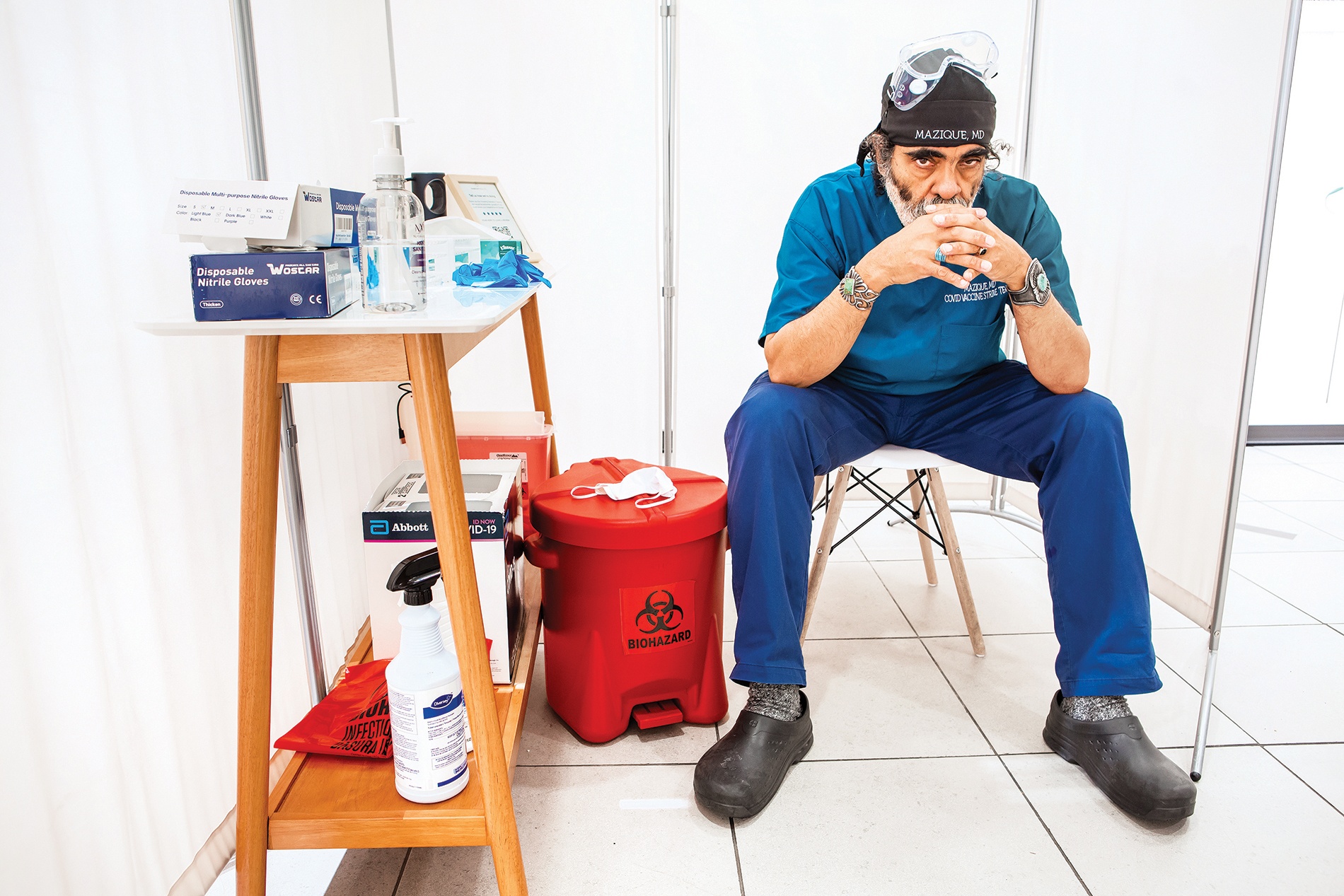Every weekday for the past year, Dr. Jeffrey Mazique ’74 awoke before dawn to scour the latest studies and reports on COVID-19—information that could mean the difference between life and death for the patients he would see later that day.
“My attitude is that I was born to do medicine,” Mazique says. “If I don’t keep up on this, I feel like I am betraying my craft.”
Expecting to practice internal medicine, Maz-ique arrived last March at the remote reservation town of Sault Sainte Marie in Northern Michigan—home of the Chippewa Indian tribe—only to be told that he would be the sole doctor in charge of handling COVID-19. The son of two renowned Civil Rights leaders and a descendant of the Creek Nation, Mazique had spent the past decade as a locum doctor, filling temporary positions at understaffed health centers, often on reservations, where the need was greatest.
“When you are in a rural area, it’s just you and the [COVID] enemy,” Mazique says. “It’s a very scary feeling, you go into this room, this person is panting, and they’ll look into your eyes—‘Doc you gotta save me’—then you get off work and you drive home and you’re thinking, should I have done this, should I have done that.”
COVID spread faster than studies on it could be properly peer-reviewed, leaving doctors like Mazique to assess dozens of new, sometimes conflicting articles and then make their own decisions about how best to treat their patients. Working with the Chippewa tribe was an added challenge, given the dearth of health data on Native populations.
“Not only are you dealing with a mysterious disease but you don’t know how it affects Natives,” Mazique says. “There’s almost no data.”
In the hotel rooms where Mazique lived for the past year, he set up four computers running 24 hours a day to scrape the internet for COVID articles. Over the course of relentless 80-hour work weeks, Mazique’s understanding of COVID sharpened as he learned to recognize X-rays of lungs ravished by the virus and trust his intuition more than faulty COVID tests.
“It got to the point where I would say ‘I don’t care what the test says, they have it,” recalls Mazique.
He recently ended his posting at Sault Sainte Marie, but he will not forget the silence of patients waiting for their COVID test results, the mountains of used gloves and personal protective gear amassing each day, and the burning of sage as the tribe’s medicine man blessed him before he distributed vaccines on freezing winter mornings.
Mazique found inspiration during the long, lonely year in the writings of Albert Camus, author of The Plague, a meditation on duty and courage in the face of the hellish conditions of a pandemic.
“This is what you were put here to do,” Mazique would remind himself. “This is how you earn your keep on earth, how when you die you say you did something.”





